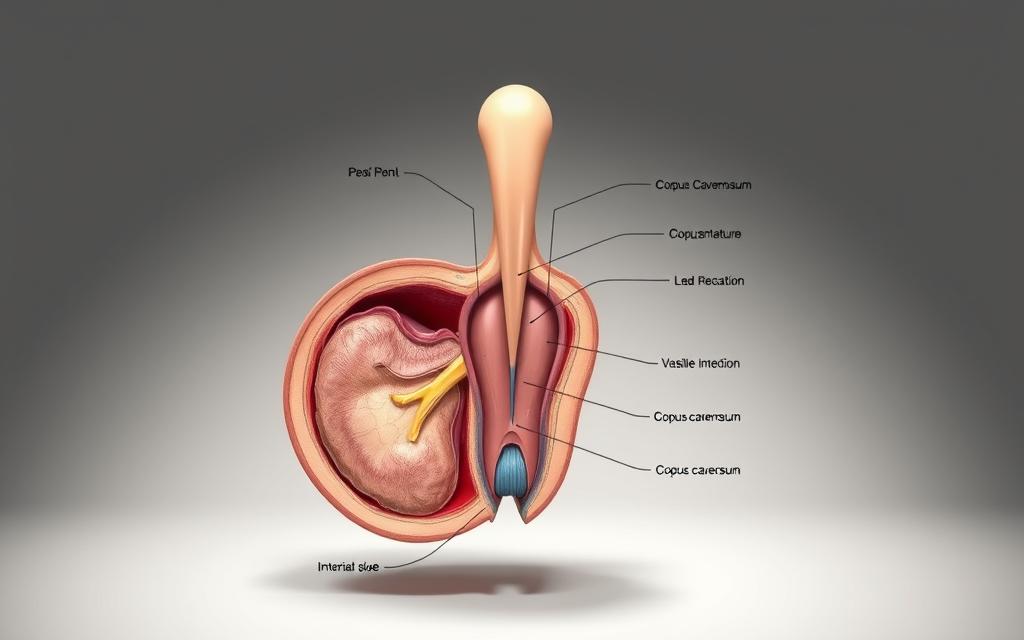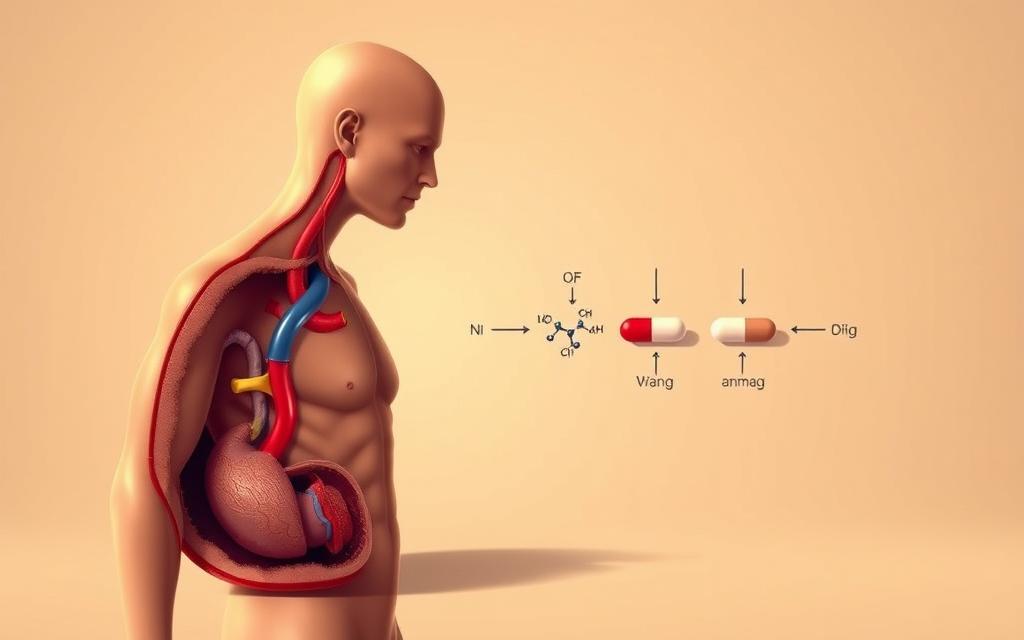Can Vasodilators Cause Erectile Dysfunction? Here’s What You Need to Know
Vasodilators are medications that widen blood vessels, improving blood flow. They are often prescribed to treat conditions like hypertension and heart disease. However, there is a concern that vasodilators might affect sexual health, particularly in relation to erectile dysfunction.
The relationship between vasodilators and erectile dysfunction is complex. While vasodilators improve blood flow, which could theoretically help alleviate erectile dysfunction, some individuals may experience adverse effects on their sexual health.
Understanding the potential impact of vasodilators on erectile health is crucial for individuals taking these medications. This article will explore the connection between vasodilators and erectile dysfunction, providing insights into the benefits and risks associated with these medications.
Understanding Vasodilators and Their Function
To comprehend the potential link between vasodilators and erectile dysfunction, it’s essential to first understand what vasodilators are and how they function. Vasodilators are a class of medications primarily used to treat cardiovascular conditions by widening the blood vessels, thereby improving blood flow and reducing blood pressure.
What Are Vasodilators?
Vasodilators work by relaxing the muscles in blood vessel walls, causing the vessels to dilate. This dilation increases blood flow and reduces blood pressure, providing relief for conditions like hypertension and heart failure.
Common Types of Vasodilator Medications
Some common types of vasodilators include calcium channel blockers, nitrates, and alpha-blockers. For more information on how these medications can affect erectile function, visit Colorado Urologists. Each type works differently to achieve the goal of vasodilation.
How Vasodilators Work in the Body
The mechanism of action for vasodilators involves targeting the smooth muscle cells in blood vessel walls. By relaxing these cells, vasodilators cause the blood vessels to widen, enhancing blood flow. This process is crucial for managing conditions associated with poor blood circulation.
Understanding how vasodilators work is key to grasping their potential effects on erectile function, as erectile health is closely linked to blood flow.
The Physiology of Erectile Function
Understanding erectile physiology is crucial for addressing issues related to erectile dysfunction. Erectile function is a complex process involving multiple physiological components.
How Normal Erections Occur
Normal erections occur due to a delicate balance between neurological, vascular, and hormonal systems. When a man is sexually aroused, the brain sends signals through the nervous system to the penis, leading to the release of nitric oxide and other vasodilators. This results in the relaxation of smooth muscle in the corpus cavernosum, allowing increased blood flow into the penis.

The Role of Blood Flow in Sexual Function
Blood flow plays a critical role in achieving and maintaining an erection. The increased blood flow into the penis, coupled with the compression of veins that prevents blood from leaving, results in an erection. Any condition that impairs blood flow, such as cardiovascular disease, can potentially lead to erectile dysfunction.
Hormonal Influences on Erectile Function
Hormones, particularly testosterone, play a significant role in regulating sexual function. Testosterone influences libido and is essential for the normal functioning of the erectile mechanism. Low levels of testosterone, or hypogonadism, can contribute to erectile dysfunction, highlighting the importance of hormonal balance in sexual health.
Can a Woman Cause Erectile Dysfunction? Relationship Dynamics
Relationship dynamics, including intimacy and performance anxiety, can have a profound impact on a man’s ability to achieve an erection. The intricate balance between psychological and physical factors plays a significant role in sexual performance.
Psychological Factors in Sexual Performance
Psychological factors are crucial in determining sexual performance. Stress, anxiety, and depression can all negatively impact erectile function. Moreover, a man’s mental state can be influenced by his partner and the overall dynamics of their relationship. For instance, a supportive partner can help alleviate some of the psychological burdens that may contribute to erectile dysfunction.
Communication and Intimacy Challenges
Effective communication is the cornerstone of a healthy relationship, and it plays a vital role in sexual intimacy. When couples face challenges in communicating their needs and desires, it can lead to feelings of isolation and performance anxiety. Intimacy is not just about physical closeness; it’s also about emotional connection. Couples who struggle with intimacy may find that their sexual relationship suffers as a result.
Performance Anxiety in Partnerships
Performance anxiety is a common issue that can affect men in any sexual relationship. The fear of not being able to perform sexually can create a cycle of anxiety that exacerbates erectile dysfunction. In a partnership, this anxiety can be influenced by the dynamics between the couple, including how they communicate about their sexual experiences and expectations. Addressing performance anxiety together can help mitigate its impact on erectile function.
By understanding the psychological and relational aspects that contribute to erectile dysfunction, couples can work together to address these challenges. Open communication, emotional intimacy, and a supportive partnership can all play a role in improving sexual health and overall relationship satisfaction.
Vasodilators and Their Paradoxical Effects on Sexual Health
Vasodilators, while improving blood flow, can paradoxically contribute to erectile dysfunction in some individuals. This complex relationship between vasodilators and sexual health is crucial for understanding the broader impacts of cardiovascular medications.
Blood Pressure Medications and ED Risk
Certain blood pressure medications, including vasodilators, have been associated with an increased risk of erectile dysfunction (ED). The exact mechanism is not fully understood, but it’s believed that changes in blood pressure and blood flow can affect erectile function.
Mechanism Behind Vasodilator-Induced ED
The mechanism behind vasodilator-induced ED involves the intricate balance of blood flow and pressure within the penile arteries. Vasodilators can cause a drop in blood pressure, potentially reducing blood flow to the penis and affecting erectile function.
Individual Variations in Medication Response
It’s essential to note that individuals respond differently to vasodilator medications. Factors such as overall health, other medications being taken, and the specific type of vasodilator used can influence the risk of developing ED.
| Factor | Influence on ED Risk | Considerations |
|---|---|---|
| Age | Increased risk with older age | Older adults may be more susceptible to medication side effects |
| Health Conditions | Presence of diabetes, hypertension | Underlying health conditions can exacerbate ED risk |
| Medication Type | Variability among vasodilator types | Some vasodilators may have a higher risk of ED than others |
Understanding these factors can help individuals and healthcare providers make informed decisions about managing cardiovascular health while minimizing the risk of erectile dysfunction.
When Female Partners Use Vasodilators: Indirect Effects
When female partners use vasodilators, it can have a ripple effect on their male partners, influencing intimacy and relationship dynamics. Vasodilators are commonly prescribed for various cardiovascular conditions, and their use can have far-reaching implications beyond the individual taking the medication.
Shared Medication Knowledge and Concerns
When both partners are aware of the medications being taken, it can lead to a shared understanding of each other’s health concerns. This shared knowledge can foster a supportive environment, where both partners feel comfortable discussing their health and any potential side effects of their medications. For instance, if a female partner is taking vasodilators for a heart condition, her male partner may become more aware of the importance of maintaining a healthy lifestyle to support her condition, thereby indirectly affecting their intimacy and relationship dynamics.
Psychological Impact on Male Partners
The use of vasodilators by female partners can have a psychological impact on male partners, particularly if they are concerned about the potential effects on their partner’s health or their own sexual performance. This concern can lead to anxiety or stress, which may negatively impact their sexual well-being. On the other hand, open communication about these concerns can strengthen their bond and improve intimacy.
Navigating Intimacy When Both Partners Have Health Issues
In relationships where both partners have health issues, navigating intimacy can become more complex. The use of vasodilators by one partner can add another layer of complexity. However, by maintaining open lines of communication and working together, couples can find ways to maintain intimacy despite these challenges. This might involve exploring new ways of expressing affection or finding ways to manage their health conditions together.
In conclusion, the use of vasodilators by female partners can have significant indirect effects on their male partners, influencing their relationship dynamics, intimacy, and overall sexual health. By understanding these potential impacts and maintaining open communication, couples can work together to navigate these challenges and strengthen their relationship.
Managing ED While Using Necessary Medications
It’s possible to manage erectile dysfunction while using necessary medications like vasodilators by adopting a few strategic lifestyle changes and medical adjustments. Individuals taking vasodilators for conditions such as high blood pressure or heart disease may experience erectile dysfunction (ED) as a side effect. However, there are several approaches to mitigate this issue.

Having Productive Conversations With Healthcare Providers
One of the first steps in managing ED while on vasodilators is to have an open and honest conversation with your healthcare provider. Discussing your symptoms and concerns can help identify potential solutions or alternative treatments that may have fewer side effects on sexual health.
Alternative Treatment Options
Exploring alternative treatment options is crucial. This might include adjusting the dosage of your current medication, switching to a different vasodilator, or considering other classes of medications that are less likely to cause ED. Your healthcare provider can help determine the best course of action based on your overall health and specific needs.
Lifestyle Changes That Support Sexual Health
Making certain lifestyle changes can also support sexual health. Regular exercise, a balanced diet, stress management, and avoiding smoking can all contribute to improved erectile function. Additionally, addressing any underlying psychological factors through counseling or therapy can be beneficial.
| Lifestyle Change | Benefit to Sexual Health |
|---|---|
| Regular Exercise | Improves blood flow and overall cardiovascular health |
| Balanced Diet | Supports overall health and can improve erectile function |
| Stress Management | Reduces anxiety and performance pressure |
By working closely with healthcare providers and making informed lifestyle choices, individuals can better manage erectile dysfunction while continuing to benefit from necessary medications like vasodilators.
Conclusion: Finding Balance Between Cardiovascular Health and Sexual Wellbeing
Maintaining a balance between cardiovascular health and sexual wellbeing is crucial, especially for individuals using vasodilators. While these medications are essential for managing conditions like high blood pressure, their impact on erectile function cannot be overlooked.
Vasodilators, by their nature, affect blood flow, which is a critical component of erectile function. Understanding this relationship is key to managing erectile dysfunction (ED) effectively. Lifestyle changes, such as adopting a balanced diet and regular physical activity, can improve both cardiovascular health and sexual wellbeing.
For men experiencing ED, treatments like Cialis (Tadalafil) offer a viable solution, providing long-lasting effects that allow for more spontaneity in intimate moments. Open communication with healthcare providers about the potential effects of vasodilators on erectile function is essential for finding the right balance.
By being aware of the potential interactions between vasodilators and erectile function, individuals can take proactive steps to maintain their cardiovascular health while preserving their sexual wellbeing.
